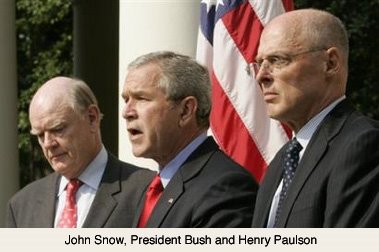That's what Harold Meyerson calls it. And he's right.
If enacted, Kyl's bill would plunge the government another trillion dollars into the red during the first decade (2011-2021) that it would be in [/quote]effect....
A decades-long campaign by right-wing activists (brilliantly documented by Yale professors Michael Graetz and Ian Shapiro in their book "Death by a Thousand Cuts") has convinced many Americans that the estate tax poses a threat to countless hardworking families. That was always nonsense, and under the estate tax revisions that almost all Democrats support -- raising the threshold for eligibility to $3.5 million for an individual and $7 million for a couple -- it becomes more nonsensical still. Under the $3.5 million exemption, the number of family-owned small businesses required to pay any taxes in the year 2000 would have been just 94, according to a study by the Congressional Budget Office. The number of family farms that would have had to sell any assets to pay that tax would have been 13.
On the other hand, an estate tax repeal would save the estate of Vice President Cheney between $13 million and $61 million, according to the publicly available data on his net worth. It would save the estate of Defense Secretary Donald Rumsfeld between $32 million and $101 million. The estate of retired Exxon Mobil chairman Lee Raymond would pocket a cozy $164 million. As for the late Sam Walton's kids, whose company already makes taxpayers foot the bill for the medical expenses of thousands of its employees, the cost to the government for not taxing their estates would run into the multiple billions.
Is now really the time to blow another $1 trillion hole in the budget? If we decide the answer is "yes", is this the cause we should blow it on? I don't think so.
"Republicans" and "fiscally responsible" don't belong in the same sentence any more. And Democrat Max Baucus should be ashamed of himself:
Behind the scenes, the action has been on the Democratic side in the Senate, as the party's leadership has sought to dissuade Montana's Max Baucus, ranking Democrat on the Finance Committee, from forging a halfway-house compromise with Kyl that would deplete revenue by only $500 billion to $600 billion during that decade.
"Only" $500 billion? Boy, what a relief.
Before we repeal the estate tax, how about fixing AMT and eliminating the budget deficit? Just for starters, I mean. The list of things that should be ahead of "repeal estate tax" on the priority list is a long one.
budget, estate tax, politics, midtopia



